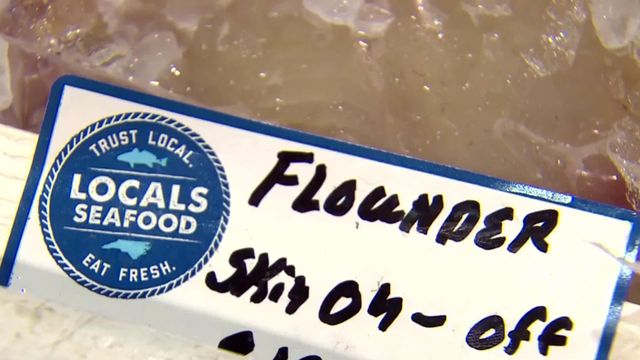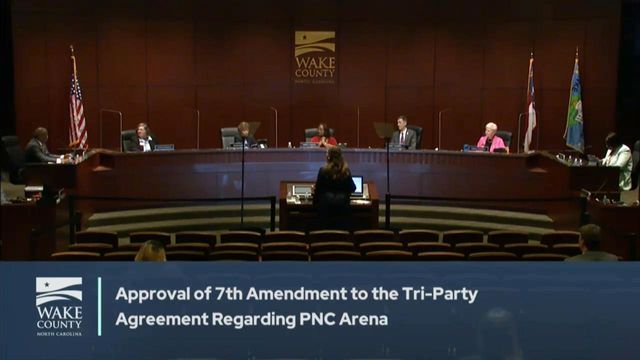WRAL investigation of mislabeled seafood prompts national call for more testing, enforcement
A WRAL News investigation into seafood mislabeling drew frustration from fishermen to consumers and now has prompted a national call for increased testing and enforcement.
John Bruno, a marine ecology professor at the University of North Carolina at Chapel Hill, performed DNA tests on fish and shrimp that WRAL Investigates bought at area grocery stores, seafood markets and even a sushi restaurant. All of the products were marked as being local, but the tests showed that three of the five shrimp samples came from the Pacific Ocean. The tests on four of the five fish samples were inconclusive.
"We certainly don't want to see the type of mislabeling that you found, but we were happy to see you going out there and making a difference," said Gavin Gibbons, spokesman for the National Fisheries Institute, a trade group representing seafood sellers from bait to plate.
State and federal regulators need more resources to do widespread testing similar to Bruno's DNA tests, Gibbons said.
"Making more laws, making more rules and regulations, isn't going to fix this, but enforcement will," he said.
Locals Seafood, which operates several markets in the Triangle, including the State Farmers Market in Raleigh, was one that Bruno's research certified as providing accurate labeling of its products. Whether it's the live crab, freshly cut swordfish or flounder, they come with a background check at Locals Seafood.
"We can tell you where it came from. If it's an oyster farm, we can tell you the guy," Locals Seafood co-owner Lin Peterson said. "We've got long-term relationships. We can tell you the port [and] the day it was caught."
Peterson said he wasn't surprised by the findings of the WRAL Investigates tests.
"I'm pretty outraged when people are lying to the consumer. Maybe it's not always their fault – it's down the line – [but] it's a systemic problem in the industry," he said. "We need more enforcement to say, 'Hey, this is what I'm selling.'"
The owners of Capital Seafood, Earp’s Seafood and Saltwater Seafood said workers mistakenly labeled imported product as local the day WRAL Investigate bought the items.
The owners of all three Raleigh markets said they carry local shrimp, but keeping enough supply is a challenge, so they supplement stock with other options.
"That's what sets us apart is we can go get it direct. We can verify it," Peterson said. "We're like over 90 percent North Carolina product."
Consumers need to get to know who sells them their seafood and the source and to understand seasons and when local seafood is and isn't available, he said. In some cases, flash-frozen fish and shrimp may be the best option.
While prices at Locals Seafood might be higher than some competitors, Peterson said the price comes with a promise.
"Once people develop that trust of our brand and what we do, they're going to get what they're paying for and what the sign says," he said.
In addition to Locals Seafood, Bruno's research has shown the following sellers consistently label their seafood correctly:
- Tom Robinson’s Fish Market and Cliff’s Meat Market, both in Carrboro
- Captain John’s Dockside, Lantern Restaurant, Hawthorne & Wood, Whole Foods and Weaver Street Market, all in Chapel Hill
- Saltbox Seafood Joint in Durham











